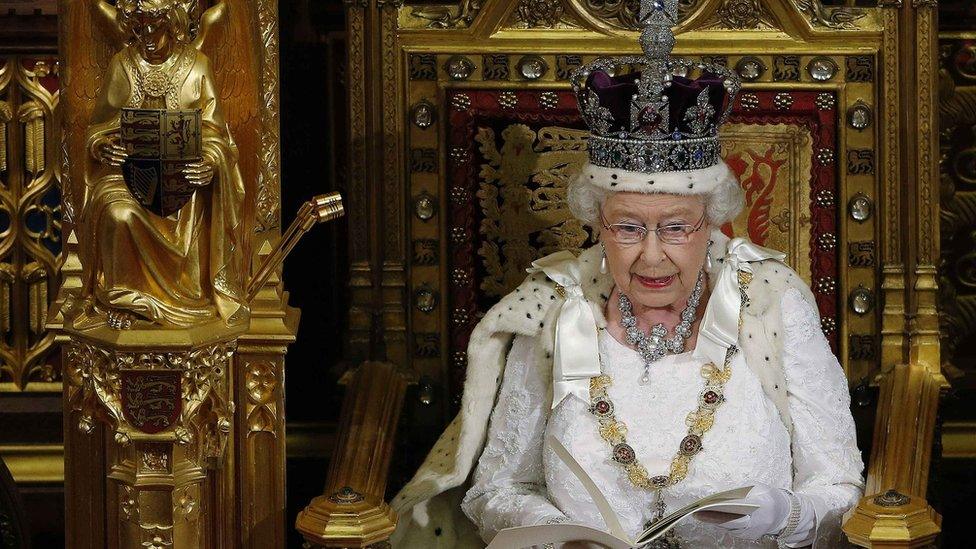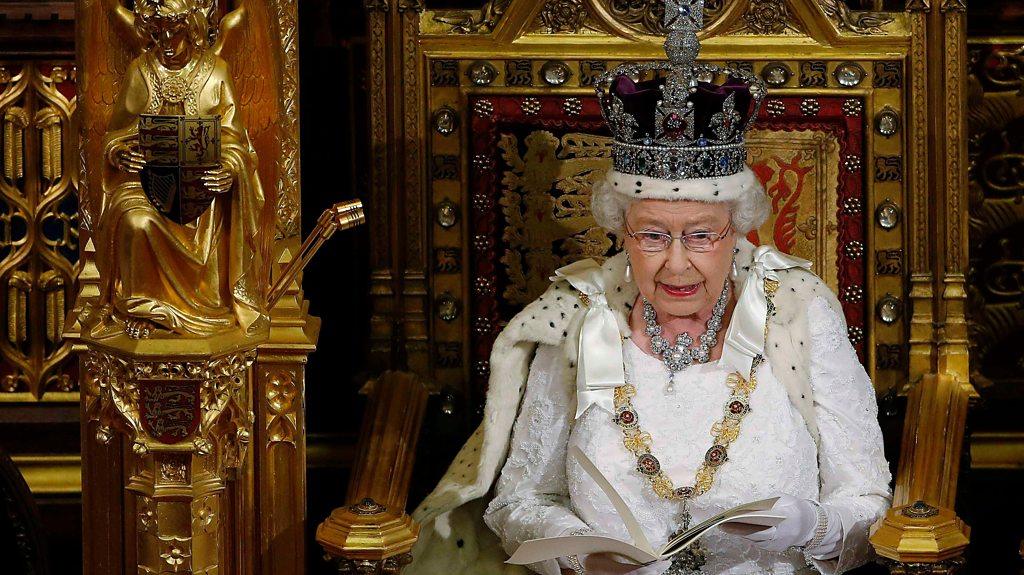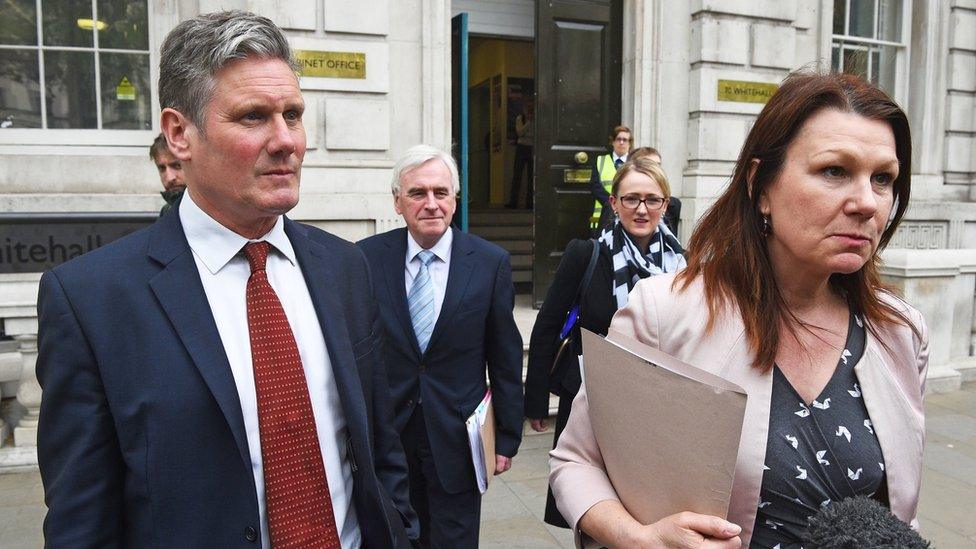Theresa May 'unlikely' to hold another Queen's speech
- Published

Theresa May has no plans to preside over another substantive Queen's speech, BBC Newsnight has learnt.
In a sign of how the prime minister believes her days in No 10 are numbered, Mrs May believes the next major Queen's speech should be left to her successor.
On Monday, The Times reported, external that the prime minister was planning to delay the Queen's speech until the autumn.
But Newsnight understands the prime minister's plans are far more straightforward.
A Whitehall source said: "It is very unlikely Theresa May will preside over a substantive Queen's speech.
"It will be for the next prime minister to set out their substantive agenda for the next phase of policy making."
The Queen's speech is where the monarch sets out the government's legislative agenda for a new parliamentary session. Such a speech was expected this Spring as the Queen set out a two-year agenda in 2017.
But the prime minister has no guarantee that she could win the vote which follows the Queen's speech.
Losing such a vote has traditionally been seen as the equivalent of losing a no confidence vote.
One complication for the prime minister is she would also have to renegotiate her "confidence and supply" arrangement with the DUP if there is a new parliamentary session.
The prime minister believes she has one major, last job in Downing Street - to pass the legislation that would implement Brexit.
If the prime minister succeeds in delivering Brexit, she would immediately announce her resignation.
The prime minister will update the cabinet on Brexit on Tuesday morning. Labour sources suggested that there were tentative signs of movement in the cross-party Brexit talks with the government on Monday.
But Downing Street does not have high expectations of a breakthrough. That means that in the coming weeks the prime minister may decide to offer MPs votes on what are being described as a small number of Brexit "options".
'Huge implications'
The No 10 plan is designed to find a consensus around a Brexit plan, possibly by allowing MPs to rank their choices. This is in contrast to the recent "indicative" votes which showed there was no majority for any of the various Brexit proposals.
Newsnight understands that the prime minister believes that if she fails to strike a deal with Labour it would be unwise to pursue another option - introduce the Brexit legislation (the withdrawal bill known as the WAB) and test support for that.
She believes that would be highly risky because if the bill were defeated in its first major vote (the second reading), she would have to end the parliamentary session if she wanted to bring the legislation back.
Parliament could then only be reconvened with a Queen's speech followed by a vote which she could lose.
The Whitehall source said: "You have to have a vote on the Queen's speech. That really matters here. There are huge implications if you do not get that vote through."
Downing Street is leaving a small amount of wiggle room. By suggesting that the prime minister has no plans for a "substantive" Queen's speech, the Whitehall source left the door open to a slimmed down Queen's speech in the final stages of the May premiership.
This could happen if she introduces the Brexit legislation, it is defeated and she then decides to bring it back after ending the parliamentary session.
But that is seen as unlikely.
"That is perilous for the government," said the Whitehall source.
You can watch Newsnight on BBC Two weekdays at 22:30 or on iPlayer, subscribe to the programme on YouTube, external and follow it on Twitter, external.
- Published21 June 2017

- Published29 April 2019
